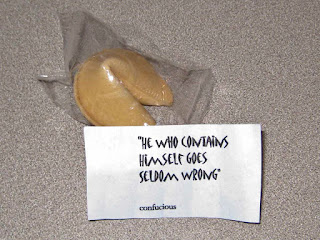2 Nephi 21: 13-32 Self
Empowerment and finding unity in all things
 |
Once while visiting my mother's home, Mom
invited me to sit and talk for a bit. Her tone was somber but cool; direct but polite; strong but
tender. I was already married and
with two small children so when she extended the invitation, I wondered what it
could possibly concern: health, legal
issues, family? But my mother, out
of love for my young family and me, wanted to discuss something of greater concern
– the power of drug and alcohol addiction.
As a Psych Nurse and Director of the Drug and
Alcohol Unit at our local hospital she was all to aware of the dangers of drug
and alcohol. She wanted to make sure I shared in her knowledge. She had both
primary and secondary experience of how alcohol and drugs and a myriad of other
addictions - by undermining the strength of unity and community- ruin lives and
families. In her profession she had helped de-tox
patients from every corner of society. She shared with me how alcoholism
affects all social economic levels, destroys brain cells, lowers birth
weights, robs one of nutrition and becomes an unquenchable thirst that destroys
our God given power to choose.
 |
| addictions rob us of choice |
I respectfully sat and
I listened. I was touched by her sincerity, her determination to speak her
mind, and her depth of emotion. As she shared how addictions are often unintentional
inheritances, I could feel her love and concern for me. I did not feel bothered by her
desire to instill limits upon me - but rather, I felt her love for me. She
made me promise that I would never drink alcohol, under any circumstance.
I would be allowed to use her as an excuse if ever I felt hounded. I
promised and then assured her that her fears were unfounded. As a member of the
Church of Jesus Christ of Latter day Saints I faithfully practiced the
spiritual and dietary law known as the “Word of Wisdom.”
 |
| The recognition of God's love brings us self-mastery. |
My declaration of faith did not comfort her. Her
life experience had taught her that religious belief, while good, might not be
enough to keep me safe. Again she asked me to promise. So I nodded my
head in assurance. Little did I know that the day would indeed come when
faith-based belief would not deter social and business associates. But when told of my respect for and promise
to my mother they ceded their purpose and left me to my choice. The sincere
love of a parent, a mother, can be a strong power in our lives.
As I pondered Lehi's words, I realized that his talk
with his sons, like my mother's to me, was meant to empower. My mother’s words
left with a strong sense of self. And even more important, I gained the gift of
family unity. I knew that if I would make wise choices, my mother’s strength
would always be with me. If ever I felt alone or lost the power to choose, I
had only to remember her experience to help me regain perspective.
 |
| Addictions lead us into cycles that become hard to break |
Lehi recognized that his sons actions were caught within a rut; they were not in
control of their lives, their emotions, their goals or desires.
He implores them to "awake"(v13) and "shake off the awful
chains by which ye are bound." He wants them to "arise from the
dust" and come forth out of their-self inflicted "obscurity.(v.23)"
Lehi's plea helped me to recognize that life is
filled with varied and diverse powers
that want to destroy our power to choose. Lehi wanted his sons to discard the powers that bind them and
recognize how the “power of God” gives us our true freedom.
When we engage the powers of God we find self. God's love is a selfless gift. In contrast, when we allow any of these other
powers to control us, we unwittingly find ourselves surrounded by "the
sleep of hell" or caught by the "awful chains" (v.13) that bind.
A few of these might be: anger, jealousy, hardened hearts, bad habits, the need
for “power over others”(v.25), alcohol, drugs, the need to win or be right etc.
Lehi understood that the powers of God bring truth(v.26) unity and
self mastery(v. 15,20). For when
we are in control of our lives, we have the power of choice. Once free to make
choice we are then able to choose unity. Once "united in all things"
we are able to find strength beyond our own, and a safety that comes from “the
arms of his love.” (v.15)
 |
| Addictions weaken our resolve to self motivate |
Having tasted of the Lord's "glory", Lehi only wanted his sons to have this joy. Lehi understood the difference
between the powers that breed faith in our lives and the powers that make us weak. As a power,
faith in God's love (v.15) leads us to "the truth" (v.26) self expression(v.23), self realization(v.21), and above all self-empowerment (v.21). As a power, addictions weaken our resolve, our desires, and our
ability to self motivate. In an effort to inspire his sons Lehi expounded where weaknesses lead:
·
to a "deep sleep" (v. 13)
·
to "the sleep of hell" (v.13)
·
to be "bound by chains"(v. 13)
·
"the eternal gulf of misery and woe."(v.14)
·
to become blind to the "statutes and judgments of the
Lord"(v.16)
·
to bitterness and hard heartedness( v. 17)
·
cursing and destruction (v.18)
·
obscurity (v. 23)
·
rebelliousness (v 24)
·
false accusations (v 25)
·
a denial of the power of the Spirit of God
 |
| Confucious says: He who contains himself goes seldom wrong |
In contrast, Lehi implores his sons to remember
the goodness that comes from self mastery. He wants them to "be
men", "be determined in one mind," "be determined in one
heart," and "be united in all things" (v 21). He wants
them to be "righteous" (v 19) and enjoy the fruits of
"prosperity" (v 21). He wants them to "remember"(v.12), hearken (v.12), "hear" (v.14), and "keep"(v.20) the commandments of God. Ill-bred obsessions keep us from remembering; they keep us from hearing, they teach us to let go of all that is eternal and all that would help us find unity.
Lehi spoke in verse 27 of the "power of
God" within his younger son Nephi. Nephi, unlike his embittered elder
brothers had chosen to exercise the power of belief, the power of faith, the
power of righteousness, the power of truth, the power of the word of God,
the power of "eternal welfare" and even the power of
"the glory of God." Because of his choice to act in such a manner he
retained the power of self-mastery, discernment, and decision making in
critical situations: i.e. the saving of the ship, the loss of the bow, the
finding of food, the direction of travel(1Nephi).
My mother's love can be likened unto the love
Lehi had for his sons. He implored them to arise from the dust. My mother
implored me to make and keep a promise. Like my mother, Lehi shares his experience and seeks to
help his sons understand he only wants for them to know "joy" (v 21). But
before they can know this joy they must find within themselves the power of
choice and take back the power that their unbridled passions had stolen from
them.
In her experience as a nurse, Mom had seen how
unchecked habits can destroy our ability to discern life truths. And she saw many
of her patients reclaim their love of self and find joy. Lehi's mastery of life
powers had led him to state that "the Lord hath redeemed my soul from
hell; I have beheld his glory, and I am encircled about eternally in the arms
of his love." (v15) I understand now how God's love can not only empower
us but can unite us. The power of self-love when combined with love of family creates a mighty force for good in our lives.
Unity is a blessing that comes to those that
seek self mastery. In order for unity to exist each individual must
exercise their own strength. They must "keep" within their heart a desire
to serve, to love, to reach out and include others. They must seek the powers that strengthen. No one can force unity upon
another. Unity comes first from self mastery.
Lehi wanted his sons to know that addictions and
unbridled passions separate us. He wanted them to understand that in order for
them to become "men' they needed to put their fears aside and exercise
faith. He understood that self-mastery unites us, but only when we are free from the powers of habits that bind. He understood that faith in a loving, all powerful, and selfless God brings the best kind of power into our life, the power of eternal joy.










